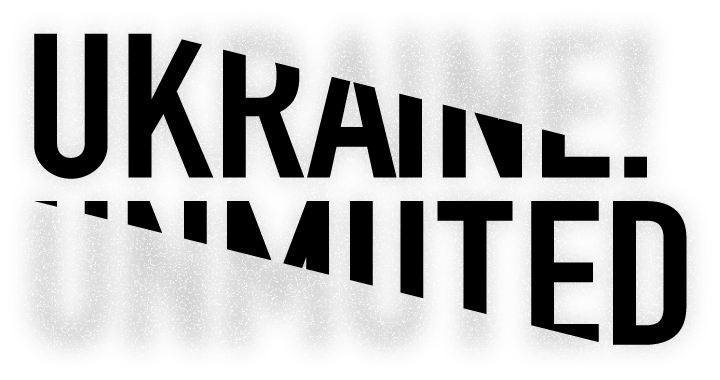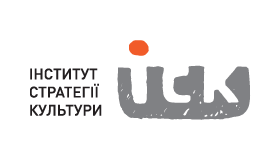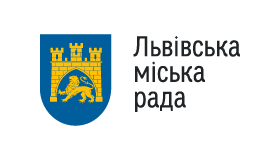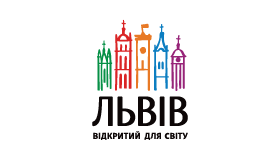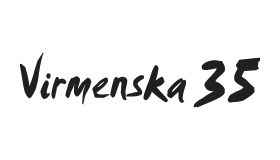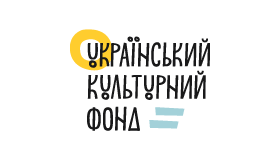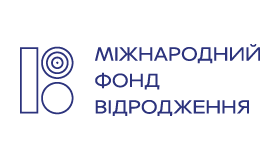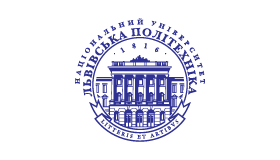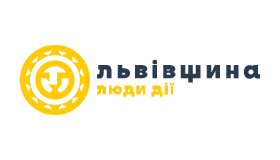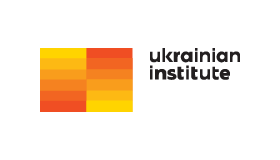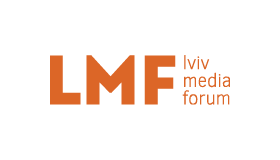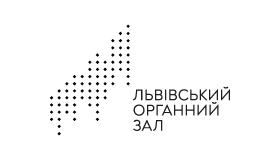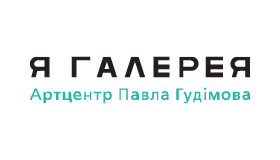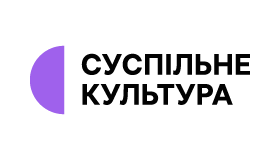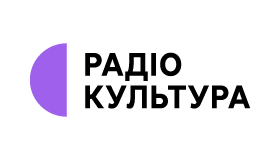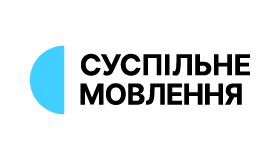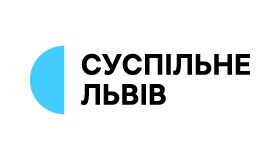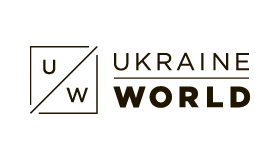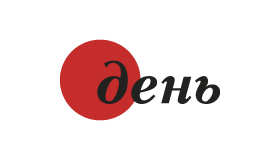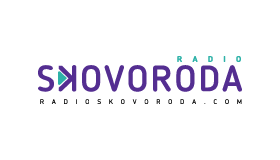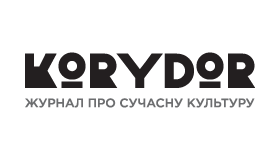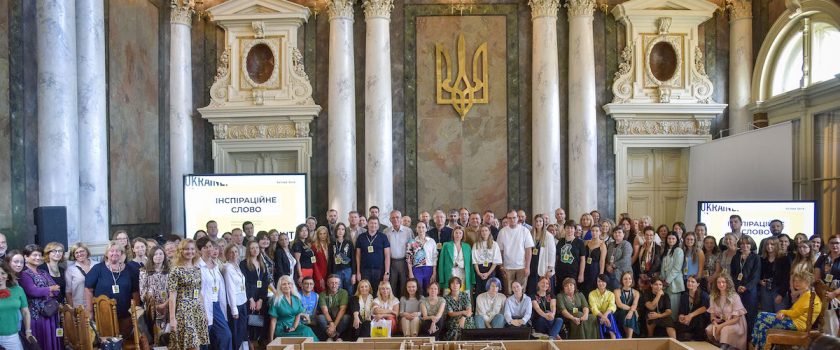
On September 7-9, 2023, a long-anticipated event took place in Lviv – the III biannual Culture Congress. The event attracted about 300 participants from all regions of Ukraine (including the temporarily Russian-occupied ones) and the countries of the world (such as Belgium, Netherlands, Czech Republic, Poland, Brazil, Japan, Bosnia and Herzegovina, and Hungary).
The Culture Congress is a platform for reflection on the actual issues from the sphere of culture and beyond. Thus, the first Congress edition, TRANSITION 1989 (2019) covered the experience of the last 30 years (after the fall of the Berlin wall); the second one, STAGE OF THE FUTURE (2021), united participants from Ukraine and the countries of Central and Eastern Europe to develop a common vision of the future of culture. The third Congress, UKRAINE! UNMUTED, was, at the same time, focused on the new reality and challenges that Ukrainian society and cultural sphere in particular have faced since February 24, 2022. We are talking about defining different experiences of living through the war; the operation of cultural institutions and migration; the search for the new vocabulary, relevant to the present-day situation; building of the Ukrainian narrative by Ukrainians themselves; culture as an endangered environment, yet also a room of strength, action, and struggle; the work with trauma etc.
The III Congress, UKRAINE! UNMUTED, included three blocks of discussions: “The language of war”, “Migration”, “Awakening of the voice”, a supplemental program “TOGETHER”, and a supplemental program “Ukrainian cross-section”.
Considering the specificity of present-day conditions, the III CULTURE CONGRESS HAD AN UNCONVENTIONAL OPENING: it began with a minute’s silence for the cultural activists and defenders of Ukraine, whose voices quieted down at the war so that the voice of Ukrainian culture continued to be heard.
In her welcome speech, Yuliia KHOMCHYN, director of the Cultural Strategy Institute, said: “We lose a lot of light to finally find it. Our duty to ourselves and to those killed by Russia now as well as in the previous centuries, our duty to the entire world is to make UKRAINE! UNMUTED.” At the same time, Rostyslav KARANDIEIEV, acting culture and informational policy minister, stressed the need for connecting people and institutions and developing the action plan for the post-war restoration of culture. Maksym KOZYTSKYI, head of Lviv Regional Military Administration, emphasized on the importance of the role of people as bearers of culture and its representatives worldwide. He said that Ukraine has begun to speak out and be talked of not just because we are dying for the sake of our country, but also because we are living for the sake of the whole world. Yurii BOBALO, professor, rector of Lviv Polytechnic National University, stated that young people of Ukraine have a need in development within the context of European culture, not the so-called “Russian world”, and outlined available opportunities of support for the development of culture among students. Andrii MOSKALENKO, first deputy mayor of Lviv and deputy for economic development, defined the key aspects of up-to-date building of new cultural institutions in the city and provided the audience with successful cases of giving a powerful answer to the newest challenges. Oleksandr SUSHKO, executive director of the International Renaissance Foundation, said that we exist now at the starting point of a very important change about Ukrainian culture: this means that we are rediscovering our own culture and unveiling it globally. Khrystyna BOYKO, director of the ZMIN Foundation, stated that culture is a weapon and a survival kit as well: this is why it is of such importance to support the development of cultural communities which are increasing the ecosystem.
This year, the Culture Congress has also become a platform for cultural activists to unite and speak up about the actual processes occurring in the sphere of culture on the governmental level. Thus, they announced the Letter in support of the appointment of Yuliia Fediv to the post of culture and informational policy minister of Ukraine, signed by the representatives of the organizing team, curatorial group, and the audience of the Congress (you can sign the letter online here: https://bit.ly/45YbcTc).
The opening of the III Culture Congress had a traditional inspirational component. This year, the inspirational speech was given by two activists who defend Ukrainian culture on the international arena as well as in trenches: these were Oleksandra Matviichuk, human rights defender, head of the Center for Civil Liberties, rewarded with the Nobel Peace Prize in 2022, and Anatolii Dnistrovyi, writer, artist, and combat officer. Oleksandra MATVIICHUK spoke about human rights in Ukraine and the region of the OSCE, documenting violations during the war in Ukraine, and the need to advocate the international accountability for the Russian Federation for its war crimes in Ukraine. The inspirator finished her speech by quoting the famous religious scholar Ihor Kozlovskyi who passed away shortly before the Congress: “The ‘boomerang of love’ extends our lives and fills them with sense precisely because we are humans. And humans have a human dimension of their existence. This dimension is called love.” (The full text of the speech is available under the link — https://bit.ly/45FrKQg). Anatolii DNISTROVYI elucidated the issue of de-russification, the need for digitalization of Ukrainian content, understanding of how the actual Ukrainian culture is functioning in wartime, and comprehension of requirements to our global deeds. Besides, the inspirator emphasized the importance of cultural self-discovery, since the society is now in the process of returning to its own historical origins, redefining its modernity, and drawing inspiration from patterns of the previous artistic generations. It was noted in the speech that “a stunning ideological shift has turned the energy of the actual Ukrainian culture into a constantly compressing and releasing spring” and that culture means much more than just a sector or branch of industry: it has become an “effective and dynamic substance” of a significant influence on the audience. (The full text of the speech is available under the link — https://bit.ly/3sL63Q8).
DAY 1 — «THE LANGUAGE OF WAR» / SEPTEMBER 7
War aggression is, inter alia, a naming crisis. Our usual linguistic tools prove impotent and useless in the new actuality that goes far beyond imagination and understanding. Among the new realia, even those familiar to us became unprecedentedly intensive.
What semantic shifts do the words we’ve grown accustomed to have to undergo? What new shadow meanings do they acquire? What words will never again be used metaphorically or playfully? What new communication skills have we gained in private or public contacts? Is our linguistic war experience translatable to any extent? Is fiction – an extremely subjective and emotional type of writing – able to do something against the war challenges? And what is, after all, remaining unnamed and silenced despite all our nominative efforts? These, among others, were the questions which Zoriana RYBCYNSKA, head of the Department of Culturology at the Humanitarian Faculty of the Ukrainian Catholic University, and poet and translator Ostap SLYVYNSKY decided, as curators of the discussion block “The language of the war”, to raise with the community. The block included three discussions and a conversation, along with a discussion and an advocatory dialog within the supplementary program TOGETHER.
During the first discussion, “TRANSLATING THE EXPERIENCE OF WAR”, moderated by Ostap SLYVYNSKY, the international guests of the Congress (social anthropologist Diána VONNAK (Hungary), journalist and Japanese literature specialist Robert CAMPBELL (Japan), and culture practitioner, writer and publisher Krzysztof CZYZEWSKI (Poland)) shared their thoughts on translating the War Vocabulary – a book complied by Ostap Slyvynsky – or publishing it in other languages. Thus, they said that, by returning to Ukrainian language, Ukrainians are currently bringing new energy to the global cultural environment. Not copying of someone else’s experience is now the primary mission for Ukraine but providing a new interpretation, creating a new kind of culture, building a new system of values. Many countries have experienced war and political bias, many countries have searched for the literary ways of delivering truth about the war. This is why a European or Japanese reader has an interested and understanding attitude to reading about the war in Ukrainian literature. Moreover, it’s a foreign reader’s acquaintance with Ukrainian literature that urges them to further explore our history and the events in Ukraine, related to Russian aggression. On top of that, the speakers recommended adding a new word to the War Vocabulary: this, in their opinion, should be the Ukrainian word “peremoha” (“victory”).
During the second discussion, “WHAT IS AN AGORA TALK”, moderated by journalist, writer, translator and editor Oksana FOROSTYNA, the speakers of the Congress (director general of the Mystetskyi Arsenal Olesya OSTROVSKA-LIUTA, executive director of the International Renaissance Foundation Oleksandr SUSHKO, journalist of Radio Culture, writer Olena HUSEINOVA, and essayist, poet and journalist Mariia TYTARENKO) discussed the events in public discourse, the changes in the media and their impact on us, the language “refractions”, and the challenging customization of Ukrainian language for international listener. The speakers said, inter alia, that Agora is never going to take Russia’s war against Ukraine as a genocide, despite the whole bunch of genocidal attributes it possesses, because this notion is already packed with other senses. We need new words to replenish our vocabulary. We are witnessing the dynamic transformation of Ukrainian language and increasing of its vocabulary’s military spirit. At the same time, Ukraine has much enhanced its global knowability under the conditions of crisis development: it has been recognized as a component of a certain community and became an integral part of the “we” in Europe. Still, the speakers pointed out the need to search for the connection points of common narratives to effectively convey our vision of the situation worldwide and benefit from Ukraine’s recognizability.
During the third discussion, “WHAT ARE WE SILENT ABOUT?”, moderated by Ivanna SKYBA-YAKUBOVA, journalist and managing partner of the Bagels & Letters PR agency, the speakers (writer and human rights activist Larysa DENYSENKO, psychiatrist, therapist and psychoanalyst Roman KECHUR, art critic, curator and researcher Borys FILONENKO, and dancer, performer and director of choreography Viktor RUBAN) discussed the peculiarities, power and meaning of silence in different contexts, reflected on how silence is turned into suppression, and what should we do about it. They paid special attention to various manifestations of silence, depending on its three components: the frequency (regarding different experiences), the wave (regarding its participation in the media space), and the hideout (regarding the stories of suppression in families due to the sense of fear). The speakers also pointed out that inside the silence, there is a trauma, since we always know what we are silent about, whereas the truth we can share requires a certain level of aesthetic design to make it less traumatizing.
During the last conversation of the first Congress Day, “THE WRITING OF WAR: FROM HOPE TO DESPAIR, FROM ‘I’ TO ‘WE’”, moderated by Ostap SLYVYNSKY, the speakers (philologist, translator and literary scholar Alla TATARENKO and journalist and poet Nermina OMERBEGOVIC (Bosnia and Herzegovina)) were reflecting on what should we do with rage, hatred, and wish for revenge. What should art and literature do about it? How can art still keep its integrity when faced to the experience of war? The Balkan experience of living in wartime is similar to ours. Russia’s aggression against Ukraine forced the artists to look differently at the war, and this is displayed in the works of Balkan and Ukrainian authors. The speakers talked about the effects of Western-imposed peace in Bosnia and Herzegovina (Nermina OMERBEGOVIC) and their own warnings about the future of Ukraine in general and that of the culture sphere in particular.
DAY 2 — «MIGRATION» / SEPTEMBER 8
Departure, repatriation, duration. Getting confused between words and terms, we increasingly rely on our new experiences. When reflecting on the world culture history, we always deal with the concept of migration as an integral part of our past, which still determines, nonetheless, certain trends of human civilization’s ongoing development. Ukraine has always been one of the most “turbulent” spots on this map. Ukrainians have been migrating and returning throughout the last century: this means that they naturally bring their cultural experience into other national cultures, and the other way around, as a consequence of their comeback to Ukraine. Before 2022, the number of Ukrainians living abroad was estimated to be about 4.9 million according to the UN, and it must have grown at least twice as bigger, as indicated by different sources. This undoubtfully changes the cultural map of our country and that of the world as such, and forms some absolutely new experience of Ukrainian culture, since never in the current century has Europe seen this mass migratory process caused by a war. This is how poet, musician and culture manager Grigory SEMENCHUK and theater producer Veronika SKLIAROVA outlined their curatorial introduction to the discussion block “Migration”.
It is worth noting that culture is always about environment, and the environment change leads to certain (sometimes too drastic) changes of already developed culture practices. The experience of those who are now forming a new cultural landscape of the territories that have survived temporary occupation or those who are staying or returning to their “nests” which still remain just relatively safe, is unique and also very important. Thinking over the future of our culture through the lens of its displacements in different directions is of no less significance. The mapping of personal and institutional experiences, was, therefore, followed by the mapping of challenges during the meetings of the second Congress Day. The routes of migration, defined at the events of this discussion block, were focused on return. Chronicles of pain dovetailed closely with vitality and hope for our “Ukrainian birds’” better future. The second Congress Day included four discussions in the main program, along with a moderated conversation and presentation within the supplementary program TOGETHER.
During the discussion “ARCHIPELAGO: NEW ISLANDS OF UKRAINIAN CULTURE ON THE WORLD MAP”, moderated by critic, editor and journalist Daria BADIOR, the speakers (writer, editor and translator Olesya MAMCHYCH, filmmaker and screenwriter Zhanna OZIRNA, and artist Pavlo MAKOV) discussed the personal experiences of cultural activists from the spheres of cinema, literature, and art. Specifically, they were talking about negative reasons for relocation which might become an impetus for the positive future. In terms of culture, the current forced migration represents stepping beyond the boundaries which might end up with a future Big Bang of culture. This process, however, needs appropriate support. In the current crisis conditions, Ukrainian cultural activists were left alone with the risks posed by the war. Lack of support from the Ukrainian government in the cultural policy is perceived much more acutely now than it was prior to the war. For instance, we are now witnessing the extinction of Ukrainian fun cinema which is going to permanently disappear if not backed by the state. At present, the artists are only bailed out by private initiatives, but this is clearly not enough. Each state needs its national culture to still remain a state, especially in wartime. The aggressor country knows the value of culture as an integral part of propaganda and spreading the ideas of the so-called “Russian world”, that is why the Russian state keeps strongly supporting and promoting it. Besides, the speakers emphasized the demand for filtering the quality of the cultural product and the threat of the totalitarian identity (like the Mother Motherland in Kyiv) to be accepted by Ukrainian society.
During the discussion “SOUTHERN SKIES OR SETTLEMENT ZONE? POLICIES OF (NO) RETURN”, moderated by Iryna PODOLYAK, chairwoman of the Coalition of Culture, the speakers (deputy minister of communities and territories development of Ukraine Oleksandra AZARKHINA, cultural manager, ex-deputy minister of culture and informational policy of Ukraine Galyna GRYGORENKO, presidential representative of Ukraine in the Autonomous Republic of Crimea, human rights activist Tamila TASHEVA, and psychiatrist, therapist and psychoanalyst Roman KECHUR) focused on discussing the ways of returning cultural activists home and the strategies, methods and mechanisms capable of working on their return to Ukraine. Given the complicated process of registration of Ukrainians forced to flee their homes due to the war, it’s hard to confirm the precise number of different professionals in the sphere of culture who have migrated abroad. The prolongation of the war means that less and less migrants are likely to return to Ukraine. It is of the utmost importance to carry out the interior work inside the country to provide the most favorable conditions for cultural development no matter what. It’s worth particular reviewing the existing institutions networks, the work of public authorities in the system of culture, and effective building of “senses bridges”. It was also emphasized in the course of discussion that people never return to the past: they always return to the bright future dreamt of. This is why Ukrainians who have migrated abroad should be given the idea of such a future. Artists remaining in Ukraine mark the audience’s need in their product since it has a therapeutic impact on the visitors in wartime. This is what the public authorities should take into account. Also, the question was raised during the discussion of the importance for Ukrainians to communicate with Crimean Tatars remaining on the peninsula and jointly define their role in Ukraine after the war.
During the discussion “INTERNALLY DISPLACED SENSES”, moderated by culturologist, cultural manager Bohdana BRYLYNSKA, the speakers (director of Luhansk Regional Museum of Local History Olesia MYLOVANOVA, director of the Territory of Terror Museum Olha HONCHAR, cultural manager and head of the Lesia Ukrainka Theater Olha PUZHAKOVSKA, and theater producer Veronika SKLIAROVA) talked about their own experience of relocation of cultural institutions and that of internal displacement, and outlined the new practice of cultural institutions’ operating without being tied to certain locations. Despite the threat to their own lives, the culture activists have rescued the cultural heritage in the east of Ukraine, been trying to keep their teams from breaking up and go on with activities of the relocated institutions. At the same time, their colleagues from the west of Ukraine have, by working together, created platforms for providing humanitarian aid and building the bridges of cooperation (like, for example, Lviv Crisis Center). The war has brought artists and managers from all the regions of Ukraine together: in new circumstances, they are learning to live and work anew, as individuals and representatives of cultural institutions.
During the discussion “BIRDWATCHING: HOW THE IMAGE OF UKRAINE HAS CHANGED ABROAD”, moderated by deputy director general of the Ukrainian Institute, human rights defender Alim ALIEV, the speakers (curator, project manager Yeva YAKUBOVSKA, journalist, producer, freelancer Apolena RYCHLIKOVA, director of culture division at the Marshal’s Office of Lower Silesia Voievodship Olga CHREBOR (Poland) and deputy director of the International Institute of Education, Culture and Relations with the Diaspora of Lviv Polytechnic National University Andrii YATSIV) discussed the issues of how our foreign partners see and perceive us and how Ukrainians abroad can become powerful advocates of their country. The focus and the scope of cultural activists’ work in cooperation with foreign partners has shifted. At the same time, the partners have pointed out that Russia’s full-scale invasion of Ukraine had brought them to reconsidering this war which hadn’t been very visible until 2022, their privileges of living in peace, and themselves as people who reside far from the conflict zone. This prompted the foreigners to become more actively involved in the issue of Russia’s war against Ukraine not just as cultural activists but also as common citizens by joining the volunteer initiatives and providing aid for Ukrainian refugees. Ukrainians gain more subjectivity in the eyes of Western Europeans. Russian propaganda and economic issues still influence the perception of Ukrainians worldwide; meanwhile, it should be remembered that Ukrainians are their own advocates in both positioning of themselves and use of new opportunities abroad. Ukrainians of the latest wave of migration, when compared to their predecessors, are more proactive in conveying their stance abroad, particularly in the sphere of culture. At the same time, the “it’s-just-Ukrainian war” paradigm is changing to “it’s-our-common-war” in Europe. In cultural sphere, this is also shown up in establishing international contacts.
DAY 3 — «AWAKENING OF THE VOICE» / SEPTEMBER 9
In her curatorial introduction to the third Congress Day, Ivanna SKYBA-YAKUBOVA, journalist and managing partner of the Bagels & Letters PR agency, wrote as follows: «We have to search for common features in a kaleidoscope of ideas and ways of being. We have to customize our voice so that our story would be heard in its truth in different registers for different audiences from different countries of the world. How should we put our story in the focus, giving, at the same time, each story the right to stay in the focus and quitting to think in terms of peripheries?
The awakening of the voice is a cautious work. After being pinched for so long, the voice may sound harsh and blaming at first. It may shatter and vibrate hesitantly, break and wheeze. An experienced phoniatrician knows how easily a gaunt voice can fall into the abyss of silence again. An experienced narrator always asks their listener: what is your own story? Which note does your voice break on?
…Who is speaking today? Who is silent today? Who will benefit from this speaking? Who is speaking out of force? Why do them who keep silence are silent? How can they protect themselves from losing when keeping silent? Why is someone the one who blames while somebody else is the one who makes excuses? We have dozens of complicated questions to keep in focus when talking to different communities of the world, and dozens answers which we, however, cannot always apply properly.
The thematic block “Awakening of the voice” consisted of two discussions and several conversations. The third day concluded with the final conversation about the Congress.
During the discussion “IN THE BEGINNING WAS THE QUESTION.
BUILDING MATRIXES OF SOLIDARITY IN THE REGIONS OF MUTUAL IGNORANCE”, moderated by Ivanna SKYBA-YAKUBOVA, the speakers (director of the Goethe-Institut in Salvador Friederike MOESCHEL (Brazil), deputy director general of the Ukrainian Institute, human rights defender Alim ALIEV, journalist Natalka HUMENIUK, cultural critic, journalist, curator Kateryna BOTANOVA, curator and cultural manager Kateryna TAYLOR) discussed the issues of transformation of Ukrainians’ communication with the world in wartime, establishing a dialogue with the countries of the Global South, and reconsidering the (post)colonial experience. Mostly Ukrainians haven’t been much interested in the history of a great part of the world, primarily that of the Southern American and African countries. This, however, is to be changed in search for new partnerships and support for Ukraine. Our country is akin to those of the Global South in having a colonial experience, and its reconsideration has begun recently. Decolonization means changing the mindset, rediscovering ourselves and the structure of the world. Yet we still remain unknown to each other. Moreover, too strong influence of Russian propaganda on the mentioned regions forms a negative image of Ukraine among the local population. Tragedy and pain cause empathy: this is the foundation to build a dialogue with these countries on. Yet a conversation on grand narratives won’t work for Ukraine nowadays. We should better study their history and painful experiences instead, discovering their culture and finding points of mutual understanding. It’s not a good idea to generalize. We should talk not about homogeneity but about heterogeneity. Culture stands as an effective communicator in such a context: this is proved by the speakers’ proficiency in representing their cultural product in African and Southern American countries.
During the discussion “SPEAKING DIFFERENTLY. THE WAYS TO CHANGE MESSAGES IN THE COURSE OF TIME”, moderated by cultural critic, journalist Anastasia PLATONOVA, the speakers (director general of the Ukrainian Institute Volodymyr SHEIKO, acting director general of the Khanenko Museum Yuliia VAHANOVA, director of the Mystetskyi Arsenal Olesya OSTROVSKA-LIUTA, and co-director of the Theatertreffen Olena APCHEL) discussed the ways for Ukraine to build and transform its international narrative. What could we have done differently? What should we still finalize? Recently, we have observed Ukrainian international communications being out of sync. Lack of the unified strategic communication policy is more than obvious. Ukrainian voice sounded very loudly on the international stage, but still, we shouldn’t lose the pace of interest in Ukrainian culture, keeping ourselves from oversaturating the global context with it at the same time. The question remains open how we should strike this balance. Meanwhile, it is of the utmost importance to talk about competitiveness of Ukrainian culture, its capitalization and challenges it is constantly facing. Among them there are: search for the ways of conveying messages for different audiences abroad, the threat of excessive misuse of the factor of our suffering caused by the war, and the level of competitiveness of Ukrainian cultural product exposed abroad. The speakers summarized that forming of sustainable cultural institutions, training venues, and the network of discovering knowledge is the top priority for the cultural sphere in Ukraine. Communication and narratives should be only the following steps.
During the conversation “‘HAVE YOU ALREADY OPTED OUT OF BURNING CHEKHOV?’ THE WEIRDEST QUESTIONS”, curated by Ivanna SKYBA-YAKUBOVA, the speakers discussed ‘answer construction sets’ for the questions most frequently asked by foreigners about Ukrainian culture. Artist, performer, curator Alevtina KAKHIDZE and writer, poet, translator Haska SHYYAN, involving the Congress participants, held the conversation in a rather unusual format: they attempted to answer these common questions on behalf of the four characters – a wrestler, a mediator, a tourist, and a gardener. As a result, the talk was very active, and its every participant was involved in finding answers. It’s hard for someone living under safe and stable conditions abroad to understand Ukrainians nowadays. Foreigners often take the war in Ukraine not as a fight for the values of democracy, for our own identity, and for our nation’s mere existence, but just as a temporary inconvenience with rise in price of food and energy, migrant issue, and a “conflict” which is to be quickly resolved. Such a superficial attitude to Russia’s war against Ukraine obviously causes superficial questions like “Don’t you see the disposal of Russian books, the way it happened during blackouts in Kyiv, as a barbarism?”, “What are you going to say to those fellow countrymen of yours who won’t see their beloved monument to Pushkin when they come home after the victory?”, “Why do you rename the streets which once had born the names of famous Russians after Ukrainian nationalists who killed Jews?”, or “Don’t you consider it good to perform a Ukrainian dance to Russian music as a symbol of reconciliation between nations?”. At the same time, the ignorance of history is not uncommon among Ukrainians themselves: some of them still cannot easily respond to such questions.
During the conversation “A SUITCASE FOR DEPARTURE.” PRACTICAL GUIDANCE FOR MANAGERS WHO WANT TO PRESENT THEIR PROJECT ABROAD”, curated by cultural manager, director of the Post Bellum Ukraine Yevheniia NESTEROVYCH, the speakers (program director of the Culture Congress Lida DUDA, project manager (Music Export Ukraine) Aliona DMUKHOVSKA, and head of the project department at the Lesya Ukrainka Theater Victoria SHVYDKO) offered practical and conceptual advice, based on their own experience of overcoming challenges while scaling cultural projects internationally. The export of career is about scaling the career. Ukrainian artists must carry out in-depth strategic preparation before visiting foreign countries, since the presence of international participants increases competition. What should be especially taken into consideration: context (target audience of the cultural project), specificity of bureaucratic procedures, the format of the product presentation (project goals and defending the artist’s own boundaries), and the factor of partnership (search for partners, financial support, protocolling of agreements between the parties etc.).
During the SUMMARIES OF THE III CULTURE CONGRESS, moderated by Anastasia PLATONOVA, the speakers (director of the Cultural Strategy Institute Yuliia KHOMCHYN, Congress Days curators Veronika SKLIAROVA, Ostap SLYVYNSKY, Ivanna SKYBA-YAKUBOVA, curator of the Ukrainian Cross-Section Triennale Vlodko KAUFMAN, co-curator of the program TOGETHER Volodymyr SHEIKO) noted the urgency and the relevance of the Culture Congress. Cultural activists have found another way of expressing themselves abroad as well as inside the country. Their voices are heard. A speech is forming a voice. During the III Culture Congress the speakers tried to find out the way of explaining their experience to others: what is happening now to cultural activists and institutions, what is happening now to all Ukrainians. After the statement of the present, the participants moved to the vision of the future. Making plans for the future in cultural sphere is of the utmost importance even despite the war. These plans must include a space for ambitions. During the Congress, the cultural activists attempted to frame the future of Ukrainian culture, following the example of Dutch urban planners who already designed the gardens of Amsterdam during the WWII. In conclusion, Yuliia KHOMCHYN said: “The Culture Congress is our common cause. This is where the network of interactions begins. I’m calling for cooperation, and I am beyond grateful to everyone who joined us.”
The recordings of the Congress events are available here:
– Day 1 «The language of war»: https://bit.ly/3ZcT7id
– Day 2 «Migration»: https://bit.ly/3EAdb4D
– Day 3 «Awakening of the voice»: https://bit.ly/3Zn5iZS
– the special event of the International Renaissance Foundation, focused on reformation of the humanitarian sphere: https://bit.ly/3sTUzKf.
– the English language version of the three days: https://bit.ly/3rbnJ76
The III Culture Congress, UKRAINE! UNMUTED, was organized in Lviv by the Institute of Cultural Strategies and Virmenska 35 NGO, with support from Lviv City Council, ZMIN Foundation, International Renaissance Foundation, Ukrainian Cultural Foundation, and Lviv Polytechnic University.
The event was made possible thanks to the defenders who protect Ukraine since 2014 until now.



